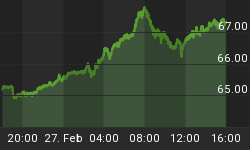Here's one for the "seriously, you're surprised?" file: China pegs its currency, the yuan, to the dollar, the dollar soars, taking the yuan with it...and fewer foreigners buy suddenly-much-more-expensive Chinese products. Duh.
China's Export Engine Loses Steam, Adding to Growth Pressure
China's exports unexpectedly slumped last month, eroding the outlook for one of the economy's better performing areas in recent months.Overseas shipments fell 14.6 percent in March from a year earlier in yuan value, the customs administration said in Beijing on Monday. That compared with the median estimate for an 8.2 percent rise in a Bloomberg News survey of analysts. Imports slid 12.3 percent, leaving a trade surplus of 18.16 billion yuan ($3 billion).
The export declines come as China grapples with overcapacity and a property slump. The country's central bank has relaxed rules on home purchasing, cut interest rates twice and reduced the ratio of reserves banks are required to set aside in the past six months, with economists forecasting further stimulus.
"Consumption is weak, investment is decelerating, and now exports have come in as weaker-than-expected," said Liu Xuezhi, an economist with Bank of Communications Co. in Shanghai. "Downward pressure on economic growth is increasing, making it more urgent for the government to start rolling out more pro-growth policies."
The Hang Seng index in Hong Kong pared gains after the release and the Australian dollar, seen as a proxy for China's economy due to Australia's shipments of raw materials, fell.
Gross domestic product data scheduled for Wednesday will probably show the economy expanded 7 percent in the first quarter from a year earlier, according to the median estimate of 38 economists in a Bloomberg survey as of April 10. That would be the slowest pace since the first quarter of 2009.
The "dismal" March export performance comes despite a higher number of working days and a low base and will spur fears that foreign demand is being undermined by a stronger yuan, Dariusz Kowalczyk, senior economist at Credit Agricole SA in Hong Kong, wrote in note after the release.
The yuan may weaken and onshore rates will be lowered, he wrote. "Odds are also rising for more government stimulus."
So the question isn't whether Chinese exports should fall -- obviously when you raise the value of your currency by 25% the stuff you're selling becomes more expensive and fewer orders get booked. It's why would economists expect exports to rise by 8% in the face of a soaring yuan and slowing growth pretty much everywhere else. See Is The Whole World Slowing Down?
Or maybe there's a deeper strategy at work. Assume that the leveraged speculating community which, since it includes the money center banks, employs most of the high-profile economists whose estimates get quoted by reporters, is desperate for more easy money to bail out their bad derivatives bets. What better way to get it than to produce ridiculously optimistic estimates of Chinese growth which are then "missed" by a mile, leading to panicked calls for more stimulus. Now it all makes sense.















